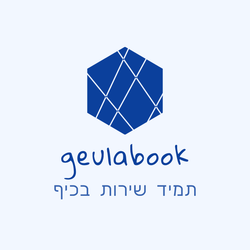The literary sample of the Mikraot Gdolot - מקראות גדולות - includes the text of the Bible while revealing additional texts that refer to it: A. Commentaries on the Torah by Pashtun commentators of the days of Israel (Rashi, Ibn-Ezra, etc.). B. Translations into Aramaic. Predecessors of the Tanach (translation by Unklos and translation by Jonathan). C. Devotional notes are notes related to the text of the Bible that count and list the occurrences of positive combinations of letters and words throughout the Bible (Tanach - תנ''ך). These notes were drafted in the first millennium by experts ("the owners of the masora") for the purpose of accuracy and uniformity in the copying and transmission of the biblical text in the communities of Israel. The first edition of Mikraot Gdolot was published in Venice in 1524, shortly after the printing revolution, by editor Jacob Ben Haim. Ben Chaim Asha Mafkeni in his efforts to read the Bible from the Caram and its contents, but because of these and other limitations he was unable to avoid many different errors in the text that entered his edition. These errors were kept in various editions. Editions to this day., The interpretation of the interpretation, is Kello Opecher, where twenty out of twenty times of all bad deeds.
Additional interpretations of "Ben Chaim" (Rashi, Ibn Ezra, RADAK) have been added to large books: Commentary of the Ramban, Commentary of Rabbi Avraham Ibn Ezra, Commentary of the Rashbam, Commentary of Rabbi Saadia Gaon, Rabbi Yosef Bechor Shur, Rlav "3, R. Eliezer of Belganzi, R. Yeshayahu Matrani, R. Yosef Ibn Caspi, R. Menachem ben Shimon, R. Menachem Gamairi, Commentary of the Rai'a, Shpati Sagems, Commentary of the Gaon Rabbi Ovadia Sefarno, Kili Yikra, Commentary of our Rabbi. In my life, Hizkuni interpretation, or Life, the opinion of the elders, including our sages, with late additions, Jonathan ben Uziel translation, Jerusalem translation, etc.
Ben Haim's edition served as a model - in wording and form - for many editions that appeared hundreds of years after it. Most printers relied on the wording he established; Few have attempted to correct it, and many have added their own errors. Most of them also added to Ben Haim's selection of commentaries. In the second half of the 1980s, Professor Menachem Cohen founded the large reading enterprise Keter within Bar Ilan University, and he is also the publisher and scientific editor of the publication. As part of this enterprise, a new basic edition of great literature was published. This edition includes the biblical text of Keter Aram Zuba, including its reconstruction in missing places, notes from the major and minor traditions according to Keter Aram Zuba, translations into Aramaic according to the best Yemeni manuscripts and the best commentators of the Middle Ages, including commentators. Not included in the Ben Haim edition and the editions that came out after him. The publication was published online and in print (all 21 volumes have already been published).

